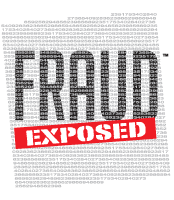On the iconic “Tuesday immediately following the first Monday in November” many of us will visit our local polling places and cast our votes for our favorite (or least reviled) candidate. It is arguably the most important day for any democracy – Election Day. Aspiring democracies the world over view our electoral process as the gold standard of government by the people and admire the peaceful transition of power that occurs without incident every 4 to 8 years. Despite how the rest of the world perceives the integrity of our electoral process, we never seem to make it through an election cycle without allegations of some sort of voter fraud. And while there is an argument (unsurprisingly, divided along party lines) as to whether voter fraud actually exists in 2016 America, it is undeniably part of the history of our democracy.
Voter Fraud throughout History
In his book Deliver the Vote: A History of Election Fraud, an American Political Tradition—1742-2004, Tracy Campbell asserts that the phenomenon of election fraud in America goes all the way back to 1758, before we even were America, when George Washington allegedly won his seat in the Virginia House of Burgesses by sending 40 pounds of liquor to his neighbors. Throughout the colonial era when land ownership was a prerequisite for voting, campaigns would grant property in exchange for votes with the understanding that the title would be returned after the election.
The mid-nineteenth century, a particularly outrageous period for voter fraud, saw the rise of cooping in which backers of a candidate, usually gang members, would kidnap and subdue voters using liquor and physical force, and then take them from polling place to polling place forcing them to cast multiple votes, changing their clothes in between. Cooping is thought to be related to the untimely death of Edgar Allen Poe who was found incoherent outside a polling place on Election Day, 1849, wearing someone else’s clothes. He died 4 days later at age 40 from “congestion of the brain.” During that same period, New York City’s Tammany Hall imported inmates from Blackwell’s Island Penitentiary to vote in democratic wards. Louisiana changed its residency requirement from one year to two in an 1845 ploy to stop newcomers from voting. During the reconstruction period, southern states used poll taxes, literacy tests, violence, and intimidation to keep African Americans from the polls. In 1908 the Jewish vote was suppressed when New York City held voting registration on the Jewish Sabbath and Yom Kippur.
One of the most notorious cases of election fraud was the extremely close 1960 presidential race between Kennedy and Nixon. During that election, 4,895 registered voters cast 6,138 votes in Fannin County, Texas (75% Kennedy) and in Angelina County, TX 86 voters cast 171 ballots (86% Kennedy). In Chicago, an address where 56 Kennedy voters lived was found to be an abandoned building. A cemetery was also found where all the tombstone names were registered voters. In the 15th precinct of ward #2 Kennedy beat Nixon 74 to 3, but only 22 people were registered to vote. Following his election, Kennedy appointed his brother Bobby Kennedy as US Attorney General and he quickly put an end to all federal investigations of voter fraud in the 1960 election.
Sources:
Stolen Elections – as American as Apple Pie
http://www.slate.com/articles/news_and_politics/press_box/2008/10/stolen_electionsas_american_as_apple_pie.html
Who Voted in Early America?
http://www.crf-usa.org/bill-of-rights-in-action/bria-8-1-b-who-voted-in-early-america
Election Fraud in the 1800s Involved Kidnapping and Forced Drinking
http://www.atlasobscura.com/articles/election-fraud-in-the-1800s-involved-kidnapping-and-forced-drinking
Reconstruction-Era Disfranchisement and Present-Day Voter Suppression
https://themanuscript.net/2012/07/25/reconstruction-era-disfranchisement-and-present-day-voter-suppression/
US Presidents and Election Fraud
http://rangevoting.org/PresFraud.html

